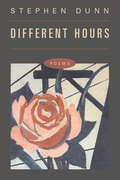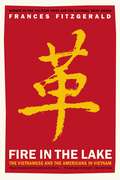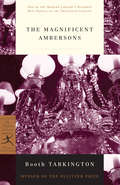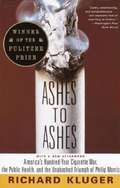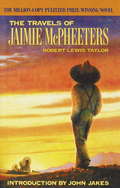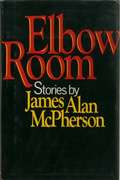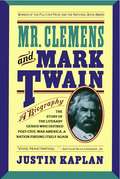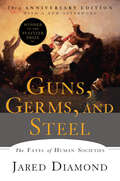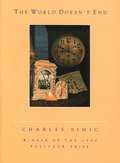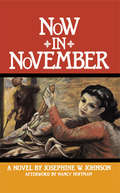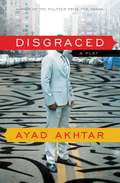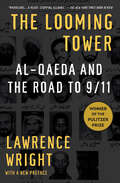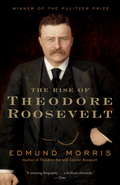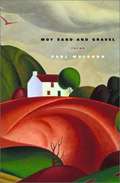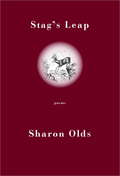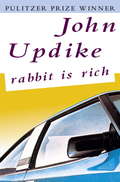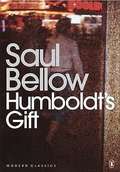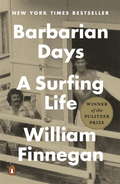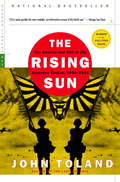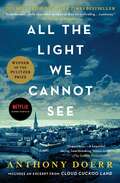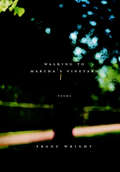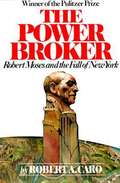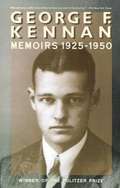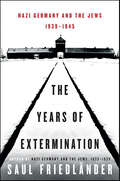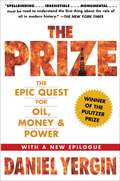Special Collections
Pulitzer Prize Award Winners
Description: Bookshare is pleased to offer the following titles, winners of the Pulitzer Prize Award. Note: Some drama winners are available and are listed under Fiction awards. #award
- Table View
- List View
Different Hours
by Stephen DunnA wise and graceful new collection by one of our "major, indispensable poets" (Sidney Lea). The mysteries of Eros and Thanatos, the stubborn endurance of mind and body in the face of diminishment--these are the undercurrents of Stephen Dunn's eleventh volume. "I am interested in exploring the 'different' hours," he says, "not only of one's life, but also of the larger historical and philosophical life beyond the personal."
Winner of the 2001 Pulitzer Prize for Poetry.
Fire in the Lake
by Frances FitzgeraldThis landmark work, based on Frances FitzGerald's own research and travels, takes us inside Vietnam into the traditional, ancestor-worshiping villages and the corrupt crowded cities, into the conflicts between Communists and anti-Communists, Catholics and Buddhists, generals and monks and reveals the country as seen through Vietnamese eyes.
With a clarity and authority unrivaled by any book before it or since, Fire in the Lake shows how America utterly and tragically misinterpreted the realities of Vietnam.
Winner of the Pulitzer Prize
Winner of the National Book Award
The Magnificent Ambersons
by Booth TarkingtonSelected by the Modern Library as one of the 100 best novels of all time
The Magnificent Ambersons chronicles the changing fortunes of three generations of an American dynasty. The protagonist of Booth Tarkington's great historical drama is George Amberson Minafer, the spoiled and arrogant grandson of the founder of the family's magnificence. Eclipsed by a new breed of developers, financiers, and manufacturers, this pampered scion begins his gradual descent from the midwestern aristocracy to the working class.
Today The Magnificent Ambersons is best known through the 1942 Orson Welles movie, but as the critic Stanley Kauffmann noted, "It is high time that [the novel] appear again, to stand outside the force of Welles's genius, confident in its own right."
"The Magnificent Ambersons is perhaps Tarkington's best novel," judged Van Wyck Brooks. "[It is] a typical story of an American family and town--the great family that locally ruled the roost and vanished virtually in a day as the town spread and darkened into a city. This novel no doubt was a permanent page in the social history of the United States, so admirably conceived and written was the tale of the Ambersons, their house, their fate and the growth of the community in which they were submerged in the end."
Winner of the Pulitzer Prize when it was first published in 1918,
Ashes to Ashes
by Richard KlugerNo book before this one has rendered the story of cigarettes -- mankind's most common self-destructive instrument and its most profitable consumer product -- with such sweep and enlivening detail. Here for the first time, in a story full of the complexities and contradictions of human nature, all the strands of the historical process -- financial, social, psychological, medical, political, and legal -- are woven together in a riveting narrative. The key characters are the top corporate executives, public health investigators, and antismoking activists who have clashed ever more stridently as Americans debate whether smoking should be closely regulated as a major health menace. We see tobacco spread rapidly from its aboriginal sources in the New World 500 years ago, as it becomes increasingly viewed by some as sinful and some as alluring, and by government as a windfall source of tax revenue. With the arrival of the cigarette in the late-nineteenth century, smoking changes from a luxury and occasional pastime to an everyday -- to some, indispensable -- habit, aided markedly by the exuberance of the tobacco huskers. This free-enterprise success saga grows shadowed, from the middle of this century, as science begins to understand the cigarette's toxicity. Ironically the more detailed and persuasive the findings by medical investigators, the more cigarette makers prosper by seeming to modify their product with filters and reduced dosages of tar and nicotine. We see the tobacco manufacturers come under intensifying assault as a rogue industry for knowingly and callously plying their hazardous wares while insisting that the health charges against them (a) remain unproven, and (b) are universally understood, so smokers indulge at their own risk. Among the eye-opening disclosures here: outrageous pseudo-scientific claims made for cigarettes throughout the '30s and '40s, and the story of how the tobacco industry and the National Cancer Institute spent millions to develop a "safer" cigarette that was never brought to market. Dealing with an emotional subject that has generated more heat than light, this book is a dispassionate tour de force that examines the nature of the companies' culpability, the complicity of society as a whole, and the shaky moral ground claimed by smokers who are now demanding recompense.
The Travels of Jaimie McPheeters
by Robert Lewis TaylorEnjoyed by millions since its first publication in 1959, The Travels Of Jaimie McPheeters is the lively story of a 13-year-old boy's adventures on a journey across America in 1849. This million-copy Pulitzer Prize-winning classic details the journey of Jaimie and his father from Kentucky to gold-rush California.
Elbow Room
by James Alan McphersonA beautiful collection of short stories that explores blacks and whites today, Elbow Room is alive with warmth and humor. Bold and very real, these twelve stories examine a world we all know but find difficult to define.
Whether a story dashes the bravado of young street toughs or pierces through the self-deception of a failed preacher, challenges the audacity of a killer or explodes the jealousy of two lovers, James Alan McPherson has created an array of haunting images and memorable characters in an unsurpassed collection of honest, masterful fiction.
Pulitzer Prize Winner
Mr. Clemens and Mark Twain
by Justin KaplanMark Twain, the American comic genius who portrayed, named, and in part exemplified America's "Gilded Age," comes alive -- a presence felt, an artist understood -- in Justin Kaplan's extraordinary biography.
With brilliant immediacy, Mr. Clemens and Mark Twain brings to life a towering literary figure whose dual persona symbolized the emerging American conflict between down-to-earth morality and freewheeling ambition. As Mark Twain, he was the Mississippi riverboat pilot, the satirist with a fiery hatred of pretension, and the author of such classics as Tom Sawyer and Huckleberry Finn. As Mr. Clemens, he was the star who married an heiress, built a palatial estate, threw away fortunes on harebrained financial schemes, and lived the extravagant life that Mark Twain despised. Kaplan effectively portrays the triumphant-tragic man whose achievements and failures, laughter and anger, reflect a crucial generation in our past as well as his own dark, divided, and remarkably contemporary spirit.
The book begins as the thirty-one-year-old Mark Twain, carrying bottled within himself the experience of his boyhood in Hannibal and his coming-of-age on the Mississippi and on Nevada's silver-rush frontier, quits San Francisco and the old elemental America of the open spaces. He is heading east for the burgeoning new urban America of commerce, invention, finance, and status, where he is destined to marry well, hobnob with the rich and influential, throw away fortunes on tragically alluring schemes...and produce literary works that fulfill and go beyond the vocation he has already acknowledged: "to excite the laughter of God's creatures." He is heard, seen, made palpable. The texture of his marriage with Olivia Langdon, the protean presence of Mark Twain on the lecture platform, his friendships and enmities -- virtually all his closest relationships partook of both -- spring to life. His writing and publishing experience is organically re-created. His endurance in the face of personal tragedy, his unrivaled charm, his compulsion to quarrel, his humility and his vanity are evoked and felt. His wit rings through the book. "Honest poverty is a gem that even a King might be proud to call his own, but I wish to sell out. I have sported that kind of jewelry long enough." Thus the young Mark Twain, on the eve of world fame, spoke his disgust at a money-centered society in that blatantly philistine voice that he chose for his most savage satirical declarations. But all his life -- racked by his own ambivalences -- he was to embrace the values of that society. Mr. Clemens and Mark Twain brilliantly conveys this towering literary figure who was himself a symbol of the peculiarly American conflict between moral scrutiny and the drive to succeed. Mr. Clemens lived the Gilded Life that Mark Twain despised. The merging and fragmenting of these and other identities, as the biography unfolds, results in a magnificent projection of the whole man; the great comic spirit; and the exuberant, tragic human being, who, his friend William Dean Howells said, was "sole, incomparable, the Lincoln of our literature."
Winner of the National Book Award
Pulitzer Prize Winner
Guns, Germs, and Steel
by Jared DiamondIn this book, Jared Diamond convincingly argues that geographical and environmental factors shaped the modern world. Societies that had had a head start in food production advanced beyond the hunter-gatherer stage, and then developed religion --as well as nasty germs and potent weapons of war --and adventured on sea and land to conquer and decimate preliterate cultures. A major advance in our understanding of human societies, Guns, Germs, and Steel chronicles the way that the modern world came to be and stunningly dismantles racially based theories of human history.
Winner of the Pulitzer Prize, the Phi Beta Kappa Award in Science, the Rhone-Poulenc Prize, and the Commonwealth club of California's Gold Medal.
The World Doesn't End
by Charles SimicIn this collection, winner of the 1990 Pulitzer Prize, Charles Simic puns, pulls pranks. He can be jazzy and streetwise. Or cloak himself in antiquity. Simic has new eyes, and in these wonderful poems and poems-in-prose he lets the reader see through them.
Now in November
by Josephine W. Johnson and Nancy HoffmanBrilliant, evocative, poetic, savage, this first novel (1934) depicts a white, middle-class urban family that is turned into dirt-poor farmers by the Depression and the great drought of the thirties.
The novel moves through a single year and, at the same time, a decade of years, from the spring arrival of the family at their mortgaged farm to the winter 10 years later, when the ravages of drought, fire, and personal anguish have led to the deaths of two of the five. Like Ethan Frome, the relatively brief, intense story evokes the torment possible among people isolated and driven by strong feelings of love and hate that, unexpressed, lead inevitably to doom. Reviewers in the thirties praised the novel, calling its prose "profoundly moving music," expressing incredulity "that this mature style and this mature point of view are those of a young women in her twenties," comparing the book to "the luminous work of Willa Cather," and, with prescience, suggesting that it "has that rare quality of timelessness which is the mark of first-rate fiction."
Pulitzer Prize Winner
Disgraced
by Ayad Akhtar"Sparkling and combustible" (Bloomberg Businessweek), "DISGRACED rubs all kinds of unexpected raw spots with intelligence and humor" (Newsday). "In dialogue that bristles with wit and intelligence, Akhtar puts contemporary attitudes toward religion under a microscope, revealing how tenuous self-image can be for people born into one way of being who have embraced another.... Everyone has been told that politics and religion are two subjects that should be off-limits at social gatherings. But watching these characters rip into these forbidden topics, there's no arguing that they make for ear-tickling good theater" (New York Times). "Add a liberal flow of alcohol and a couple of major secrets suddenly revealed, and you've got yourself one dangerous dinner party" (Associated Press).
The Looming Tower
by Lawrence WrightUPDATED AND WITH A NEW AFTERWORD
gripping narrative that spans five decades, The Looming Tower explains in unprecedented detail the growth of Islamic fundamentalism, the rise of al-Qaeda, and the intelligence failures that culminated in the attacks on the World Trade Center. Lawrence Wright re-creates firsthand the transformation of Osama bin Laden and Ayman al-Zawahiri from incompetent and idealistic soldiers in Afghanistan to leaders of the most successful terrorist group in history. He follows FBI counterterrorism chief John O'Neill as he uncovers the emerging danger from al-Qaeda in the 1990s and struggles to track this new threat. Packed with new information and a deep historical perspective, The Looming Tower is the definitive history of the long road to September 11.
Pulitzer Prize Winner
The Rise of Theodore Roosevelt
by Edmund MorrisThis is Morris's highly acclaimed account of Theodore Roosevelt's life, encompassing the years from Roosevelt's birth to his service in the White House. He was one of our most vibrant presidents; his image still haunts our past and our present. This fascinating and comprehensive biography of the extraordinary naturalist, adventurer, soldier, and politician, tells the improbable, but very real, story of a man determined to get what he wanted, an American who helped define our century and our very character.
Winner of the Publitzer Prize
Winner of the National Book Award
Moy Sand and Gravel
by Paul MuldoonPaul Muldoon's ninth collection of poems, his first since 1998, finds him working a rich vein that extends from the rivery, apple-heavy County Armagh of the 1950s, in which he was brought up, to suburban New Jersey, on the banks of a canal dug by Irish navvies, where he now lives. Grounded, glistening, as gritty as they are graceful, these poems seem capable of taking in almost anything, and anybody, be it a Tuareg glimpsed on the Irish border, Bessie Smith, Marilyn Monroe, Queen Elizabeth I, a hunted hare, William Tell, William Butler Yeats, Sitting Bull, Ted Hughes, an otter, a fox, Mr. and Mrs. Stanley Joscelyne, an unearthed pit pony, a loaf of bread, an outhouse, a killdeer, Oscar Wilde, or a flock of redknots. At the heart of the book is an elegy for a miscarried child, and that elegiac tone predominates, particularly in the elegant remaking of Yeats's "A Prayer for My Daughter" with which the book concludes, where a welter of traffic signs and slogans, along with the spirits of admen, hardware storekeepers, flimflammers, fixers, and other forebears, are borne along by a hurricane-swollen canal, and private grief coincides with some of the gravest matter of our age.
Pulitzer Prize for Poetry 2003.
Stag's Leap
by Sharon OldsIn this wise and intimate new book, Sharon Olds tells the story of a divorce, embracing strands of love, sex, sorrow, memory, and new freedom. As she carries us through the seasons when her marriage was ending, Olds opens her heart to the reader, sharing the feeling of invisibility that comes when we are no longer standing in love's sight; the surprising physical bond that still exists between a couple during parting; the loss of everything from her husband's smile to the set of his hip; the radical change in her sense of place in the world. Olds is naked before us, curious and brave and even generous toward the man who was her mate for thirty years and who now loves another woman. As she writes in the remarkable "Stag's Leap," "When anyone escapes, my heart / leaps up. Even when it's I who am escaped from, / I am half on the side of the leaver." Olds's propulsive poetic line and the magic of her imagery are as lively as ever, and there is a new range to the music--sometimes headlong, sometimes contemplative and deep. Her unsparing approach to both pain and love makes this one of the finest, most powerful books of poetry she has yet given us.
Rabbit Is Rich
by John UpdikeThe hero of John Updike's Rabbit, Run, ten years after the events of Rabbit Redux, has come to enjoy considerable prosperity as the chief sales representative of Springer Motors, a Toyota agency in Brewer, Pennsylvania. The time is 1979: Skylab is falling, gas lines are lengthening, and double-digit inflation coincides with a deflation of national self-confidence. Nevertheless, Harry "Rabbit" Angstrom feels in good shape, ready to enjoy life at last--until his wayward son, Nelson, returns from the West, and the image of an old love pays a visit to the lot. New characters and old populate these scenes from Rabbit's middle age as he continues to pursue, in his zigzagging fashion, the rainbow of happiness.
Winner of the Pulitzer Prize, the National Book Award, and the National Book Critics Circle Award
Humboldt's Gift
by Saul BellowHumboldt's Gift is the story about Charlie Citrine who posthumously receives a gift from the poet Von Humboldt Fleischer that changes the way he views himself and the world. Long Synopsis: In Saul Bellow's Humboldt's Gift, the main protagonist, Charlie Citrine, a successful writer, is an intellectual who is tormented by feelings of emptiness and by disturbing recollections. In his youth, his love of literature causes him to befriend the poet Von Humboldt Fleischer. While he is alive, Fleischer becomes Citrine's mentor and teaches him the importance of the spiritual and sparks his interest in intellectual pursuits. Through Fleischer's death along with other experiences and associations, Citrine learns how to integrate his spirituality and intellectuality with the mundane. Throughout the novel, Citrine grapples with the question of how the human being with an infinite soul is going to live in the often anti-human and materialistic society and culture. Charlie is reawakened to his responsibilities. Equally important as asking this question, Citrine finds the courage to continue in his life which is plagued by paradoxes and uncertainties. In the end of the novel, he is awakened to his responsibilities and learns to become involved in everyday reality.
Pulitzer Prize Winner
Barbarian Days
by William FinneganBarbarian Days is William Finnegan's memoir of an obsession, a complex enchantment. Surfing only looks like a sport. To initiates, it is something else entirely: a beautiful addiction, a demanding course of study, a morally dangerous pastime, a way of life.
Raised in California and Hawaii, Finnegan started surfing as a child. He has chased waves all over the world, wandering for years through the South Pacific, Australia, Asia, Africa. A bookish boy, and then an excessively adventurous young man, he went on to become a distinguished writer and war reporter. Barbarian Days takes us deep into unfamiliar worlds, some of them right under our noses--off the coasts of New York and San Francisco. It immerses the reader in the edgy camaraderie of close male friendships annealed in challenging waves.
Finnegan shares stories of life in a whitesonly gang in a tough school in Honolulu even while his closest friend was a Hawaiian surfer. He shows us a world turned upside down for kids and adults alike by the social upheavals of the 1960s. He details the intricacies of famous waves and his own apprenticeships to them. Youthful folly--he drops LSD while riding huge Honolua Bay, on Maui--is served up with rueful humor. He and a buddy, their knapsacks crammed with reef charts, bushwhack through Polynesia. They discover, while camping on an uninhabited island in Fiji, one of the world's greatest waves.
As Finnegan's travels take him ever farther afield, he becomes an improbable anthropologist: unpicking the picturesque simplicity of a Samoan fishing village, dissecting the sexual politics of Tongan interactions with Americans and Japanese, navigating the Indonesian black market while nearly succumbing to malaria. Throughout, he surfs, carrying readers with him on rides of harrowing, unprecedented lucidity.
Barbarian Days is an old-school adventure story, an intellectual autobiography, a social history, a literary road movie, and an extraordinary exploration of the gradual mastering of an exacting, little understood art. Today, Finnegan's surfing life is undiminished. Frantically juggling work and family, he chases his enchantment through Long Island ice storms and obscure corners of Madagascar.
**Winner of the 2016 Pulitzer Prize for Autobiography**
The Rising Sun
by John TolandThis history of World War II chronicles the dramatic rise and fall of the Japanese empire, from the invasion of Manchuria and China to the atomic bombing of Hiroshima and Nagasaki. Told from the Japanese perspective, The Rising Sun is, in the author's words, "a factual saga of people caught up in the flood of the most overwhelming war of mankind, told as it happened--muddled, ennobling, disgraceful, frustrating, full of paradox."In weaving together the historical facts and human drama leading up to and culminating in the war in the Pacific, Toland crafts a riveting and unbiased narrative history. In his Foreword, Toland says that if we are to draw any conclusion from The Rising Sun, it is "that there are no simple lessons in history, that it is human nature that repeats itself, not history."
Pulitzer Prize Winner
All the Light We Cannot See
by Anthony Doerr*NOW A NETFLIX LIMITED SERIES—from producer and director Shawn Levy (Stranger Things) starring Mark Ruffalo, Hugh Laurie, and newcomer Aria Mia Loberti* Winner of the Pulitzer Prize and National Book Award finalist, the beloved instant New York Times bestseller and New York Times Book Review Top 10 Book about a blind French girl and a German boy whose paths collide in occupied France as both try to survive the devastation of World War II.Marie-Laure lives with her father in Paris near the Museum of Natural History where he works as the master of its thousands of locks. When she is six, Marie-Laure goes blind and her father builds a perfect miniature of their neighborhood so she can memorize it by touch and navigate her way home. When she is twelve, the Nazis occupy Paris, and father and daughter flee to the walled citadel of Saint-Malo, where Marie-Laure&’s reclusive great uncle lives in a tall house by the sea. With them they carry what might be the museum&’s most valuable and dangerous jewel. In a mining town in Germany, the orphan Werner grows up with his younger sister, enchanted by a crude radio they find. Werner becomes an expert at building and fixing these crucial new instruments, a talent that wins him a place at a brutal academy for Hitler Youth, then a special assignment to track the Resistance. More and more aware of the human cost of his intelligence, Werner travels through the heart of the war and, finally, into Saint-Malo, where his story and Marie-Laure&’s converge. Doerr&’s &“stunning sense of physical detail and gorgeous metaphors&” (San Francisco Chronicle) are dazzling. Deftly interweaving the lives of Marie-Laure and Werner, he illuminates the ways, against all odds, people try to be good to one another. Ten years in the writing, All the Light We Cannot See is a magnificent, deeply moving novel from a writer &“whose sentences never fail to thrill&” (Los Angeles Times).
Walking to Martha's Vineyard
by Franz WrightIn this radiant new collection, Franz Wright shares his regard for life in all its forms and his belief in the promise of blessing and renewal. As he watches the “Resurrection of the little apple tree outside / my window,” he shakes off his fear of mortality, concluding “what death . . . There is only / mine / or yours,– / but the world / will be filled with the living. ” In prayerlike poems he invokes the one “who spoke the world / into being” and celebrates a dazzling universe–snowflakes descending at nightfall, the intense yellow petals of the September sunflower, the planet adrift in a blizzard of stars, the simple mystery of loving other people. As Wright overcomes a natural tendency toward loneliness and isolation, he gives voice to his hope for “the only animal that commits suicide,” and, to our deep pleasure, he arrives at a place of gratitude that is grounded in the earth and its moods.
The Power Broker
by Robert A. CaroThe Power Broker tells the hidden story behind the shaping (and mis-shaping) of twentieth-century New York (city and state) and makes public what few have known: that Robert Moses was, for almost half a century, the single most powerful man of our time in New York, the shaper not only of the city's politics but of its physical structure and the problems of urban decline that plague us today. In revealing how Moses did it--how he developed his public authorities into a political machine that was virtually a fourth branch of government, one that could bring to their knees Governors and Mayors (from La Guardia to Lindsay) by mobilizing banks, contractors, labor unions, insurance firms, even the press and the Church, into an irresistible economic force--Robert Caro reveals how power works in all the cities of the United States. Moses built an empire and lived like an emperor. He personally conceived and completed public works costing 27 billion dollars--the greatest builder America (and probably the world) has ever known. Without ever having been elected to office, he dominated the men who were--even his most bitter enemy, Franklin D. Roosevelt, could not control him--until he finally encountered, in Nelson Rockefeller, the only man whose power (and ruthlessness in wielding it) equalled his own.
Pulitzer Prize Winner
Memoirs (1925-1950)
by George F. KennanThe American diplomat's reflections of his years of government service provide insight into four decades of U.S. policy
Winner of the National Book Award
Pulitzer Prize Winner
The Years of Extermination
by Saul Friedländer"Establishes itself as the standard historical work on Nazi Germany’s mass murder of Europe’s Jews. . . . An account of unparalleled vividness and power that reads like a novel. . . . A masterpiece that will endure." — New York Times Book ReviewThe Years of Extermination, the completion of Saul Friedländer's major historical opus on Nazi Germany and the Jews, explores the convergence of the various aspects of the Holocaust, the most systematic and sustained of modern genocides.The enactment of the German extermination policies that resulted in the murder of six million European Jews depended upon many factors, including the cooperation of local authorities and police departments, and the passivity of the populations, primarily of their political and spiritual elites. Necessary also was the victims' willingness to submit, often with the hope of surviving long enough to escape the German vise.In this unparalleled work—based on a vast array of documents and an overwhelming choir of voices from diaries, letters, and memoirs—the history of the Holocaust has found its definitive representation.
The Prize
by Daniel YerginThe definitive work on the subject of oil, The Prize is a book of extraordinary breadth, riveting excitement, and great value -- crucial to our understanding of world politics and the economy today -- and tomorrow.
Pulitzer Prize Winner
